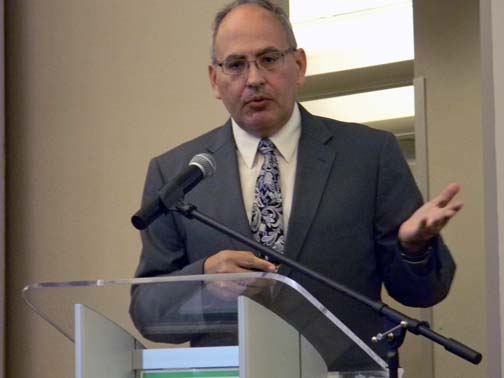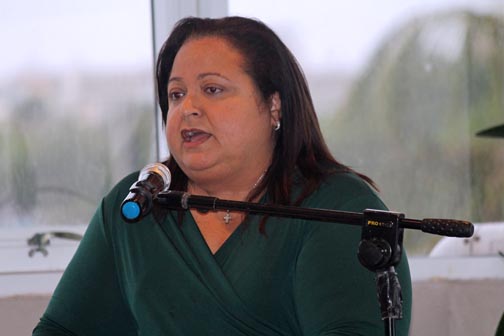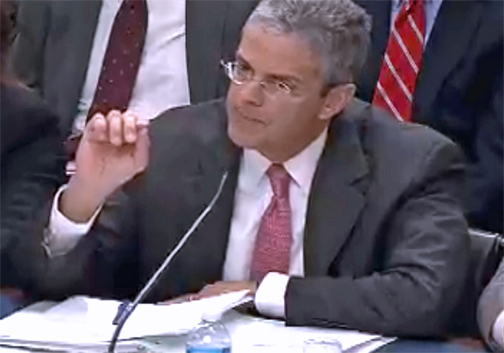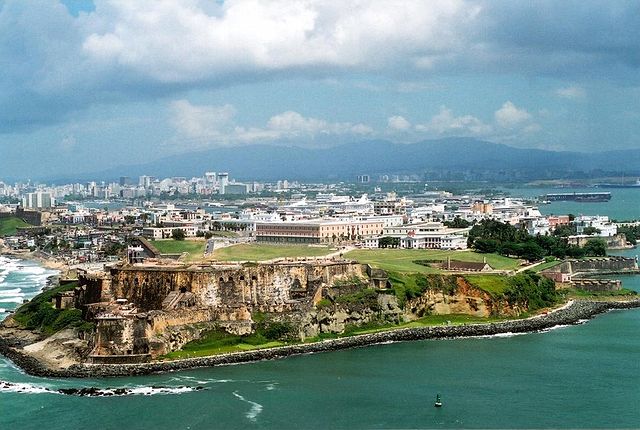Senate grills experts on Ch. 9, fiscal control board for P.R.
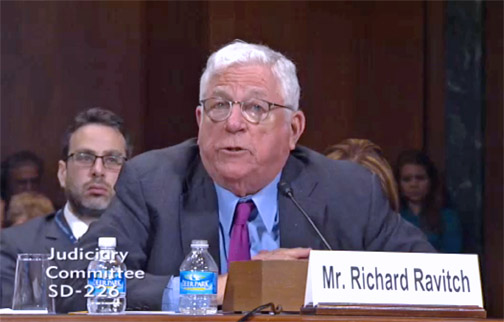
WASHINGTON — The debate over extending Chapter 9 bankruptcy protection to Puerto Rico and the possible creation of a federal fiscal control board to manage the island’s troubled finances took center stage Tuesday at a Senate Judiciary Committee hearing.
The 20-member panel headed by Sen. Chuck Grassley (R-Iowa) heard emotional speeches by Puerto Rico Gov. Alejandro García-Padilla, Resident Commissioner Pedro Pierluisi and prominent banker Richard Carrión, chairman and CEO of Popular Inc.
But when it came time for questions, the senators were mainly interested in how offering Puerto Rico the option of filing under Chapter 9 of the U.S. Bankruptcy Code would actually help the island — and if the experiences of cash-strapped U.S. cities that faced insolvency in the past offered any examples worth following.
Alex Pollock, a resident fellow at the conservative American Enterprise Institute, urged lawmakers to create an Emergency Financial Control Board to assume oversight and control of Puerto Rico’s finances, “as Congress successfully did in 1995 with Washington, D.C.; as New York state, with federal encouragement, successfully did with the insolvent and defaulting New York City in 1975, and as the state of Michigan did with the appointment of an emergency manager for the insolvent city of Detroit in 2013.”
In answer to a question by Sen. Orrin Hatch (R-Utah), Pollock said that option was a far wiser choice than offering the island Chapter 9 bankruptcy protection.
“Chapter 9 for municipal entities would not reach a lot of debt,” he replied. “The first step is a control board to clarify the situation. In a banking situation, you don’t first put the bank into receivership. You send in an examination team to find out what the situation is and give instructions to save the bank at the least cost to all concerned. That’s a fair model for the troubled, messed-up finances of Puerto Rico.”
Richard Ravitch, the former lieutenant-governor of New York who helped save the nation’s largest city from financial collapse in 1975, argued passionately for giving Puerto Rico the right to declare bankruptcy under Chapter 9 — an option open only to U.S. cities, towns, counties, tax districts, municipal utilities and school districts.
“About a year ago, the commonwealth — at the urging of some of its counselors — retained a very reputable economist, Anne Krueger, from the IMF, to do a study. She produced a very exhaustive study which concluded that the commonwealth was incapable of meeting its obligations,” he said.
Given that reality, said Ravitch, “the absence [of a bankruptcy filing] wouldn’t mean the debts would be paid.” On the contrary, he predicted, “there would be endless acrimonious litigation during which the liquidity problem would be overwhelming. In New York City’s case, it was the power to file bankruptcy that gave us the ability to leverage our negotiations with unions and banks. That was the only way you could get the financing.”
Chapter 9 is ‘terrible idea’
But Stephen Spencer, managing director of Houlihan Lokey Global Investment Banking, countered that Chapter 9 is a terrible idea for Puerto Rico.
For one thing, he said, the recent successful negotiations between bondholders and corporations such as the Puerto Rico Electric Power Authority “happened precisely because Puerto Rico did not have access to Chapter 9. Had it had, we would not have reached that accord. I believe that if it’s extended now, it would jeopardize concluding that deal, as well as the negotiations already ongoing between a substantial component of the island’s investors and the island itself.”
For another, he said people invested in the island’s debt with the understanding that Puerto Rico was explicitly precluded from filing for Chapter 9 protection.
“To me it’s very clear,” he told lawmakers. “There was an investor protection issue that went along with a unique benefit of being able to issue debt tax-free in every state of the union. You can’t separate the protection from the benefit. Those two go hand-in-hand. That would be pulling the rug out from retail investors throughout the country.”
Sen. Richard Blumenthal (D-Conn.) noted that under the constitution, states may not declare bankruptcy — but that such an argument doesn’t apply to territories.
“That is correct,” Ravitch responded. “I don’t think there’s any disagreement there. The people who work for the Puerto Rican government expected that their promise to receive benefits in their old age also perhaps relied on the fact there would not be a bankruptcy authorization.”
Insisting that he doesn’t “want Puerto Rico to be the Argentina of the Caribbean,” Spencer said his problem with Congress extending Chapter 9 to the commonwealth is not rooted in a debate over constitutional law.
“My issue is two-fold: it’s not a fix for Puerto Rico, and two, I have fundamental issues with Chapter 9 as a statute,” he said. “Congress erred when it passed a law that gutted fundamental investor protections. That introduces a tremendous moral hazard for municipalities that want to use it.”
Carlos Colón de Armas, a finance professor at the University of Puerto Rico who opposes the bankruptcy option, said many of the proposals “being toyed around with” are of limited value because what the island really needs is more investment.
“We need to improve our water storage and distribution system, our energy generating capacity, our transportation infrastructure and our business climate. Many of the issues being discussed are not really economic in nature. They are camouflaged as economic but really political in the end, so solving our status would be helpful in eliminating those discussions.”
Colón de Armas added: “Just petitioning to bankruptcy court we lose. The important thing is to restore access to financial markets. If we get to bankruptcy, even if we simply file, we are not helping Puerto Rico at all.”
Too late for that, Blumenthal responded.
“Puerto Rico has already, in effect, petitioned for bankruptcy just by asking that it be given the opportunity to do so,” said the senator and former Connecticut attorney general. “I think that horse is out of the barn.”


